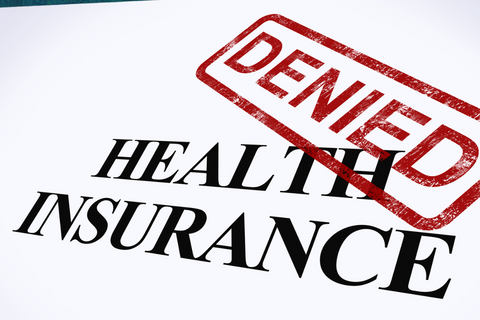Table of Contents
- Why Insurance Companies Deny Applicants for Surgery
- Not Meeting Insurance BMI Requirement
- No Prior Documented Diet or Exercise Weight Loss Programs
- Not Having Obesity-Related Health Issues
- The Wrong Procedure Is Selected
- Specific Policy Exclusions of Bariatric Surgeries
- How To Self-Pay For Bariatric Surgery Without Insurance
- Seek Private Health Care Financing
- Withdrawing Funds Early From 401K or Similar Retirement Plan
- Personal Loan Financing
- Personal Line of Credit Financing
- Refinancing Your Mortgage to Take Out Your Home Equity
- Taking Out A Loan Against Home Equity
- Seek Family and Friend Contributions or Lending
- Utilize Medical Spending Accounts
Bariatric surgery is an effective solution for individuals struggling with obesity and related health issues. As a life-changing procedure, it can improve both physical and emotional well-being. However, the cost of bariatric surgery can be a significant barrier for many, especially those without insurance coverage. In this article, we will explore options and strategies for pursuing bariatric surgery without the support of an insurance plan.
Navigating the financial aspect of bariatric surgery may seem daunting, but rest assured that there are resources available to help you. It's essential to have a clear understanding of the expenses involved and to devise a plan to manage them. We will discuss different financing options and alternative avenues to make the procedure more accessible and affordable for you.
By educating yourself about the various payment structures, seeking assistance from experienced professionals, and being proactive in your approach, you can increase your chances of successfully undergoing bariatric surgery without insurance. Stay tuned as we delve deeper into these topics and empower you with the information you need to make informed decisions about your health.
Why Insurance Companies Deny Applicants for Surgery

Not Meeting Insurance BMI Requirement
Insurance companies often have specific criteria for bariatric surgery coverage. One major factor is your Body Mass Index (BMI). Generally, insurance providers require a morbid obesity BMI of 35 or higher (with one or more obesity-related health issues) or a BMI of 40 or higher (without other health issues) for coverage. If your BMI does not meet the requirements specified by your insurance plan, your application for bariatric surgery can be denied.
No Prior Documented Diet or Exercise Weight Loss Programs
Before approving coverage for bariatric surgery, insurance companies want evidence that you have tried non-surgical weight loss programs. They typically require a documented history of diet and exercise trials supervised by a healthcare professional. Without these records, your insurance provider might refuse to cover the surgery, considering it a last resort and expecting you to try other weight loss techniques first.
Not Having Obesity-Related Health Issues
Having obesity-related health issues—rather than just a high BMI—increases the likelihood that an insurance company will cover bariatric surgery. Examples of obesity-related health issues include type 2 diabetes, obstructive sleep apnea, high blood pressure, and hypertension. If you do not have any documented obesity-related health issues, your insurance company may deny your application for bariatric surgery.
The Wrong Procedure Is Selected
Insurance companies may only cover specific bariatric procedures. For instance, some insurance providers may cover gastric bypass surgery but not gastric sleeve surgery. Before pursuing a particular procedure, it's essential to confirm with your insurance company whether that specific surgery is covered by your plan. If the procedure you select is not covered, your insurance company may deny your application.
Specific Policy Exclusions of Bariatric Surgeries
Some health insurance plans explicitly exclude coverage for bariatric surgery, regardless of whether you meet the general criteria or not. If your plan has a specific exclusion for bariatric surgery, then your application will likely be denied. Review your policy carefully to determine if it includes such an exclusion. If you review your documentation and are not sure, you should call your insurance company for a consultation on the policy coverages.
How To Self-Pay For Bariatric Surgery Without Insurance

Seek Private Health Care Financing
There are various private healthcare financing options available for weight loss surgery. One popular option is CareCredit, a credit card designed specifically for medical expenses. CareCredit offers short and long-term financing, with interest rates that vary based on the amount and length of the loan. Speak with your bariatric surgeon about partnering with financing companies to help cover the cost of your surgery, such as anesthesia, hospital stay, and surgeon's fees.
Withdrawing Funds Early From 401K or Similar Retirement Plan
If you have a 401K or similar retirement plan, consider withdrawing funds early to cover the cost of bariatric surgery. Before doing so, consult a financial advisor to understand the tax implications and potential penalties associated with early withdrawal. Additionally, some plans may allow for loan options or hardship withdrawals, which could help reduce your out-of-pocket costs.
Personal Loan Financing
Another option is taking out a personal loan from a bank or other financial institution. To qualify for the best interest rates, you will need a good credit score and a stable income. Compare different loan terms and options to find the most suitable one to cover the cost of your weight loss procedures.
Personal Line of Credit Financing
A personal line of credit can offer flexibility and ease when it comes to paying for your bariatric surgery. Similar to a credit card, this financing option allows you to borrow and repay funds up to a certain limit. Interest rates tend to be lower than those on credit cards, and you can use the funds for various medical expenses related to your surgery.
Refinancing Your Mortgage to Take Out Your Home Equity
If you own a home, consider refinancing your mortgage to take out your home equity. The additional funds can be used to pay for the cost of your weight loss surgery. It's important to understand the risks, fees, and potential changes to your mortgage interest rate before deciding on this option.
Taking Out A Loan Against Home Equity
Another option for homeowners is taking out a loan against home equity. This includes home equity loans and home equity lines of credit (HELOCs). Both options allow you to use the value of your home to finance your surgery. However, they differ in how the funds are disbursed and the repayment terms. Consult with a financial advisor to determine which option is best suited for your needs.
Seek Family and Friend Contributions or Lending
Don't hesitate to reach out to your family and friends for financial support when pursuing weight loss surgery. They may be willing to offer contributions or loans, which help alleviate some of the financial burden. Ensure transparency and clear communication about repayment terms, if applicable, when seeking assistance from loved ones.
Utilize Medical Spending Accounts
If you have access to a flexible spending account (FSA) or health savings account (HSA), these funds can be used to cover a portion of your bariatric surgery cost. Ensure that you have a letter of medical necessity from your doctor, as this may be required for FSA reimbursement. Remember to check the annual and lifetime contribution limits for these accounts, and always consult with your plan administrator for details on eligible expenses.
Also Read: How to Get Insurance to Pay for Bariatric Surgery



 Order Free Sample
Order Free Sample





